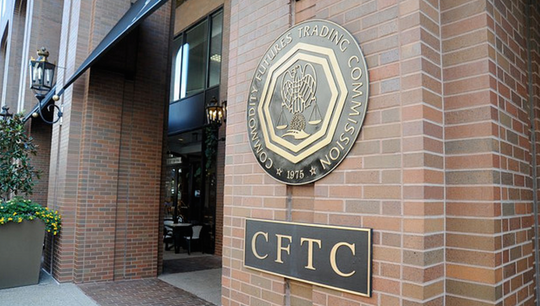Co-investment and 'club deal' vehicles: The private funds regimes in the Cayman Islands and the British Virgin Islands
By Andrew Wood; Joanna Russell; Rachel Soh, Maples Group
Published: 28 November 2022
The private equity market has seen an increase in co-investment and 'club deal' investment syndication activities in recent years, and the Cayman Islands and the British Virgin Islands continue to be jurisdictions of choice for those and other investment vehicles given their legislative framework, flexible structuring opportunities and tax neutrality.
Fund managers remain active in exploring structuring options for their vehicles, in particular, given the rise in co-investment and club deal opportunities. While investors remain interested in such investment opportunities in order to enhance diversification of their portfolios (and in the case of co-investments, to increase exposure to the pool of investment assets in the main funds they are already invested in). Many co-investment funds are structured as single investment funds – with co-investment funds being established alongside their corresponding main funds by GPs/fund managers. Fund managers may also accord favourable fee arrangements to investors in these structures, such as no-fee/no-carry arrangements, making participation in such investment opportunities even more attractive to investors.
The commercial and investor specific factors that need to be considered when deciding on the structure and domicile of a co-investment or club deal vehicle are many and varied. In addition to the relevant legislation of prospective domiciles there may also be onshore tax and/or regulatory requirements to be taken into account that may influence which jurisdiction may be most appropriate.
Legislation in both the Cayman Islands and the British Virgin Islands has evolved in recent years to introduce a regulatory overlay for closed ended funds, which co-investment and club deal structures will typically be. In doing so, the jurisdictions have continued to demonstrate their commitment to co-operation and transparency in line with international recommendations and best practices.
The Cayman Islands
The Cayman Islands Private Funds Act (the PFA) came into force on 7 February 2020 and requires the registration of closed-ended funds with the Cayman Islands Monetary Authority (CIMA) where they constitute private funds.
A private fund is defined under the PFA as a company, unit trust or partnership that offers or issues or has issued investment interests, the purpose or effect of which is the pooling of investor[1] funds with the aim of enabling investors to receive profits or gains from such entity’s acquisition, holding, management or disposal of investments, where:
- the holders of investment interests do not have day-to-day control over the acquisition, holding, management or disposal of the investments; and
- the investments are managed as a whole by or on behalf of the operator of the private fund, directly or indirectly.
It should be noted that the definition of a private fund exempts any vehicle which falls within scope of any of the specified non-fund arrangements from registration, including, by way of example, holding vehicles, joint ventures, proprietary vehicles, employee incentive schemes, individual investment management arrangements and arrangements not operated by way of business.
Under Cayman Islands law, to constitute a private fund a vehicle must have a pooling of investor funds – with pooling here understood to require there to be no fewer than two investors of record. Single-investor funds are accordingly not required to register as private funds with CIMA.
A co-investment vehicle established for a sole investor of record, therefore, would not fall within scope of the PFA. and would not be registrable. Conversely, a co-investment or club deal vehicle being established for two or more investors is likely to be registrable, and required to comply with ongoing operational requirements, under the PFA unless it is able to avail of an exemption by virtue of being a non-fund arrangement.
The British Virgin Islands
The regime relating to regulation of private investment funds in the British Virgin Islands was introduced by way of amendments to the Securities and Investment Business Act (SIBA) and came into force on 31 December 2019. SIBA now requires that any entity which carries on business or holds itself out as carrying on a business as a private investment fund in or from within the British Virgin Islands to first apply to the Financial Services Commission of the British Virgin Islands to be recognised as a private investment fund.
For the purposes of SIBA, a private investment fund means a company, a partnership, a unit trust or any other body that is incorporated, registered, formed or organised, whether under the laws of the British Virgin Islands or the laws of any other country, which:
- collects and pools investor[2] funds for the purpose of collective investment and diversification of portfolio risk; and
- issues fund interests, which entitle the holder to receive an amount computed by reference to the value of a proportionate interest in the whole or in a part of the net assets of the company, partnership, unit trust or other body.
As is the case with the Cayman Islands private funds regime, the British Virgin Islands legislation requires a pooling of investor funds. Accordingly, where a co-investment fund or club deal structure has only one investor of record, it will not be a private investment fund for the purpose of SIBA and will therefore not need regulatory recognition.
It should also be noted however that, for the purposes of SIBA (and in contrast with the position under the PFA), in order to be a private investment fund, there is also the requirement for there to be diversification of portfolio risk. This means that if a co-investment or club deal vehicle is being established for the purposes of investment into a single asset, including under certain circumstances multiple securities of a single issuer it may fall outside the ambit of the private investment fund regime in the British Virgin Islands. When considering the domicile of a structure for co-investment and club deal transactions, fund managers have conventionally opted for Cayman Islands vehicles, with the exempted limited partnership remaining the most prevalent entity type. Investor familiarity with the Cayman Islands and the exempted limited partnership structure along with the jurisdiction's sophistication and flexibility mean its popularity continues to endure.
It is of note, however, that the use of British Virgin Islands vehicles has seen a marked increase in the previous two years. This has been driven in part by the ability for single asset investment funds in the British Virgin Islands to fall outside ambit of the private investment fund regime and the obligations that entails, notably the requirement to prepare and file audited annual financial statement. It is also a product of the introduction of a new – and well-received – limited partnership regime in the jurisdiction.
The enactment of the British Virgin Islands Limited Partnership Act, which came into force on 11 January 2018, represented a major overhaul of the British Virgin Islands' limited partnership legislation. As a result of the significant changes to the previous, under-utilised, legislation, the British Virgin Islands limited partnership has now become a more viable choice for global investment fund managers. This development, coupled with the exemptions afforded to single asset investment fund vehicles, has contributed to the increased popularity of the British Virgin Islands structure with fund managers who wish to set up co-investment and club deal structures.
While the Cayman Islands continue to be the preferred domicile for investment fund structures, it is anticipated that more fund managers may consider setting up co-investment funds and club deal structures in the British Virgin Islands, in particular, where those vehicles are being established to invest a single asset or securities of a single issuer.
[1] Note that certain categories of fund investors are carved out of the "investor" definition under the PFA – namely a fund's promoters, operators or proprietary investors.
[2] For the purpose of SIBA, "investor" is not subject to the same promoter/operators/proprietary investor carve-outs as the Cayman Islands equivalent under the PFA.







